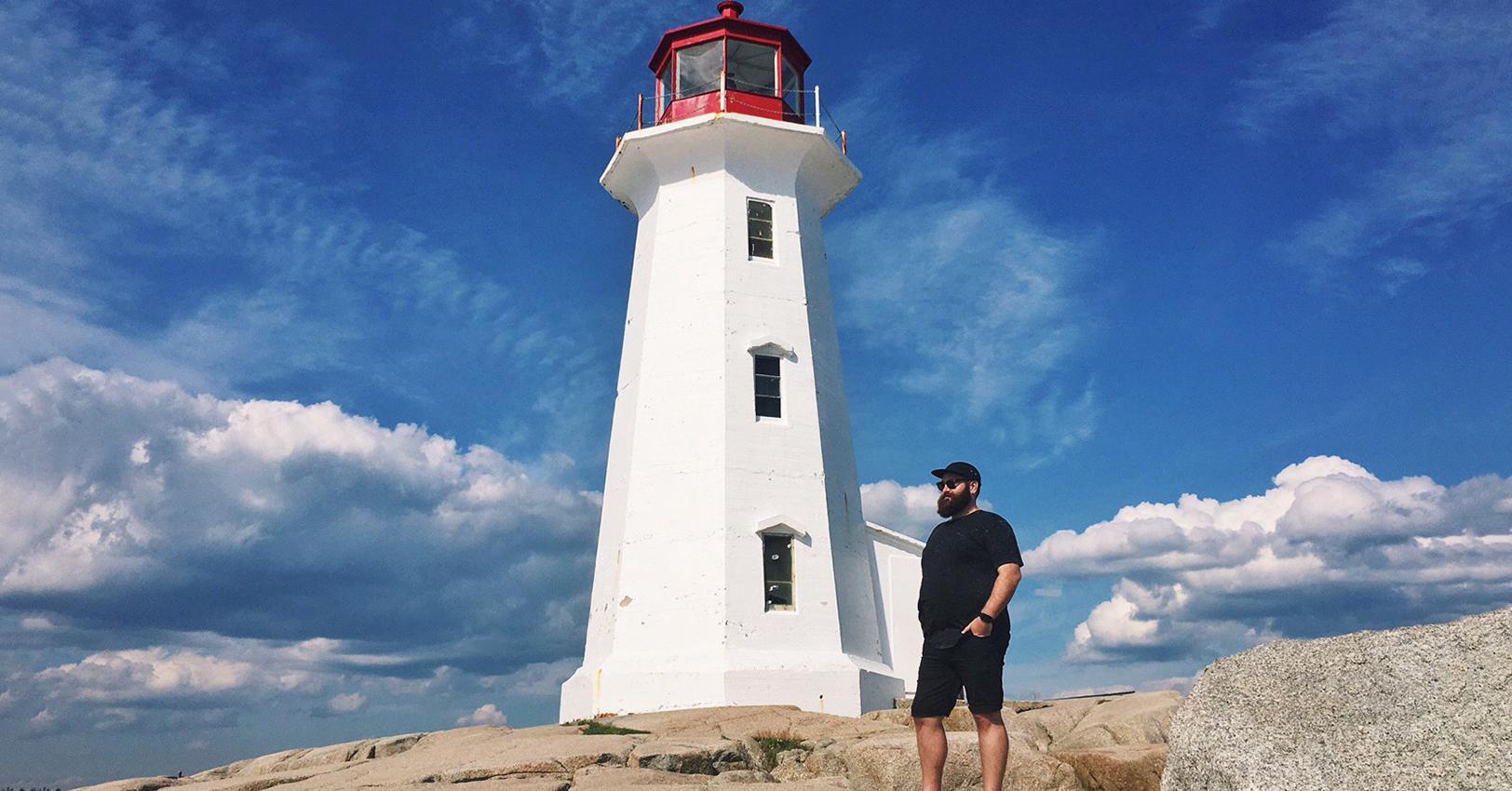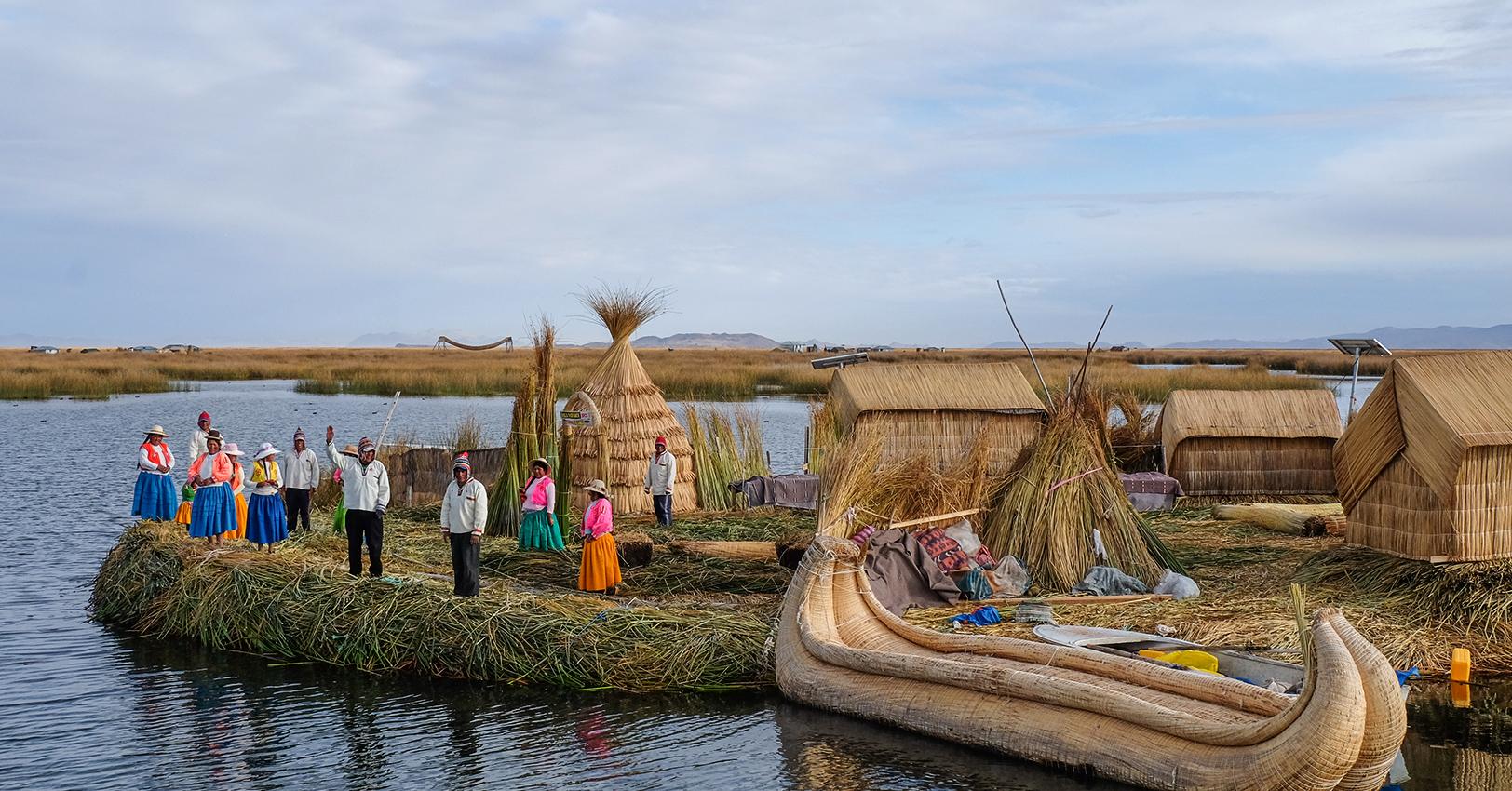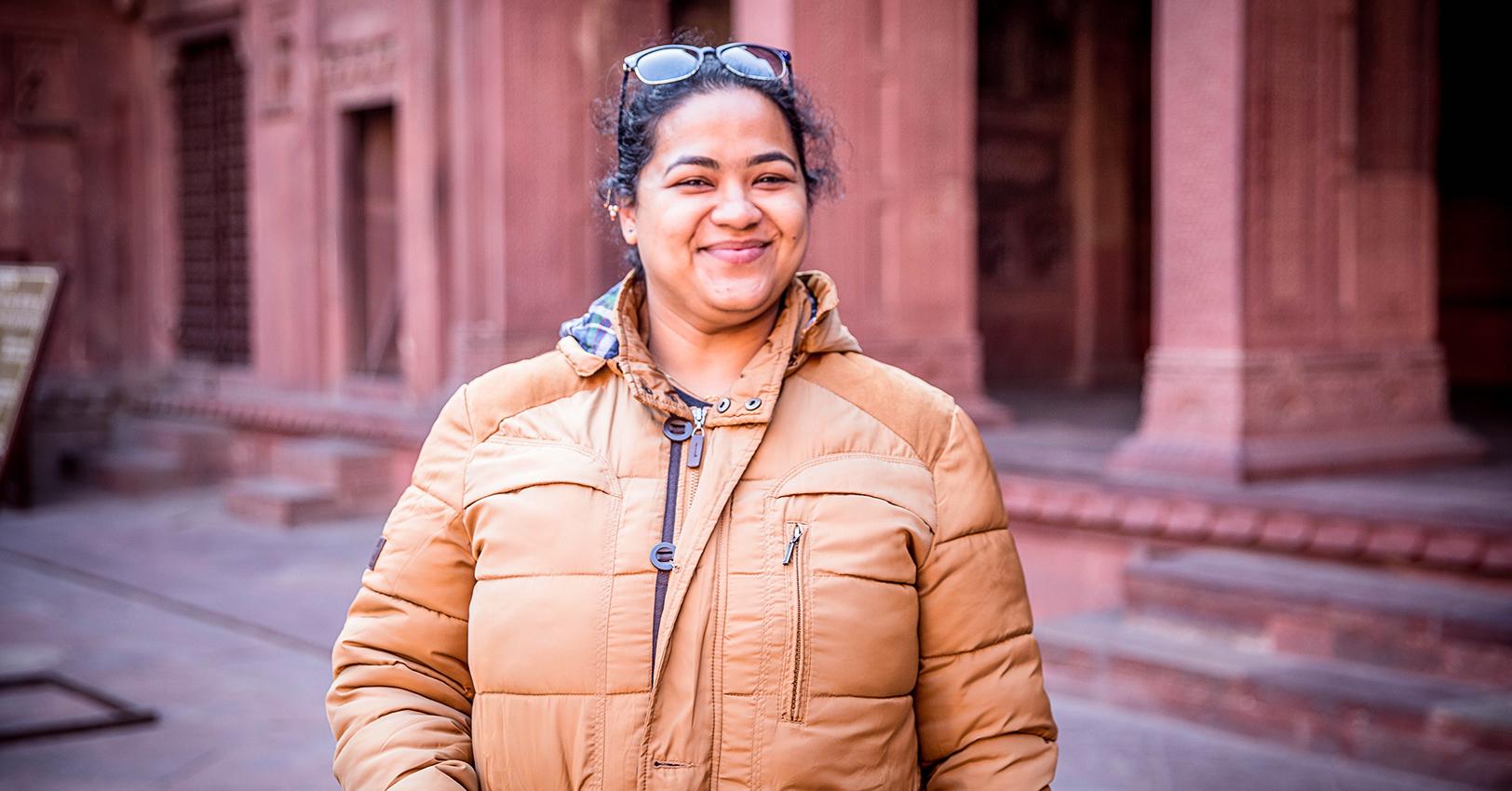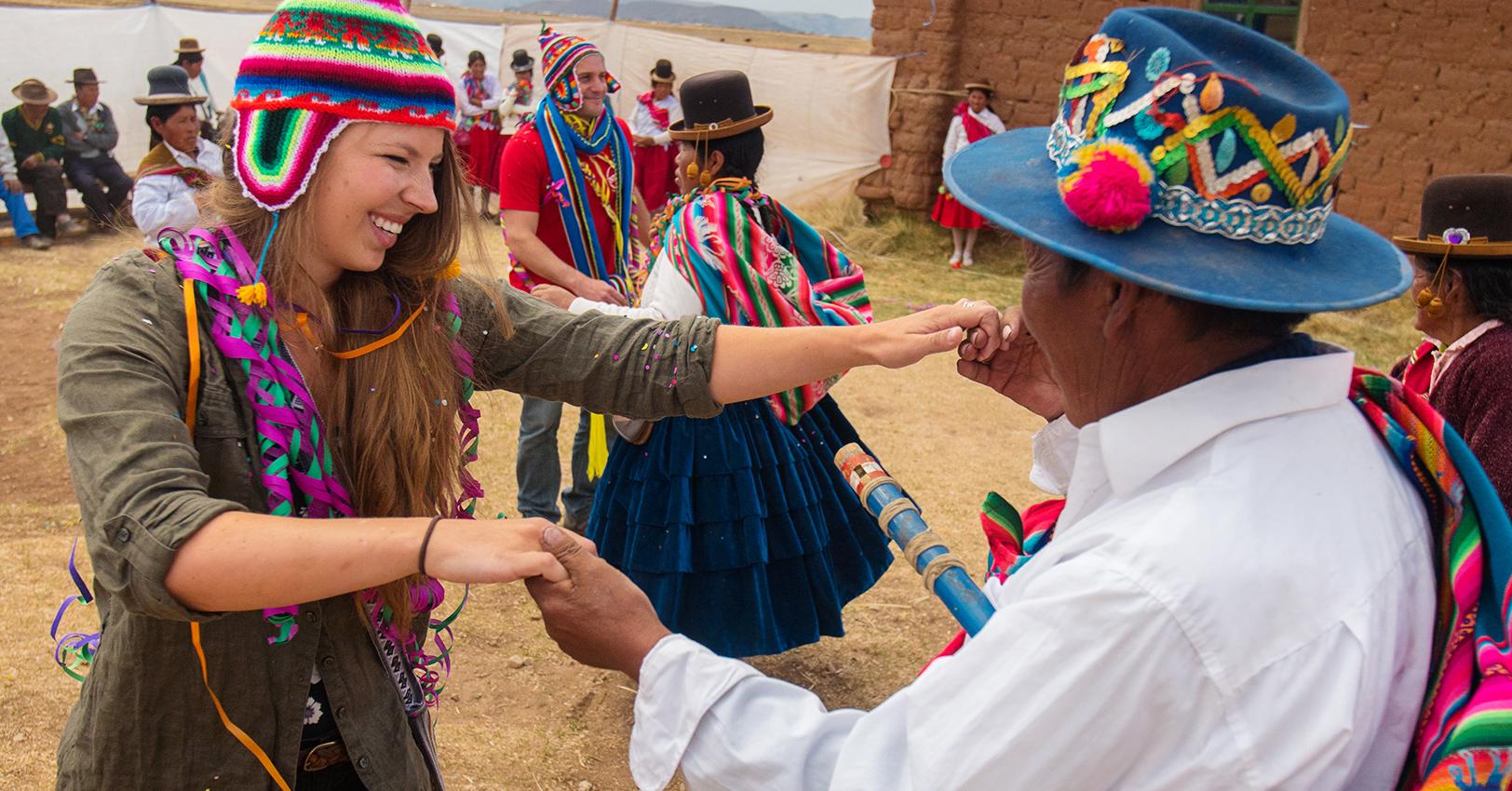How To Travel With Purpose: A Q&A With Intrepid Travel’s Chief Purpose Officer
For Leigh Barnes, it's all about responsibility, commonsense, and taking ownership.
Updated May 31 2019, 11:00 a.m. ET

Leigh Barnes, Chief Purpose Officer, Intrepid Group
Leigh Barnes is the Chief Purpose Officer of Intrepid Travel, a small-group adventure travel company specializing in real-life experiences delivered through sustainable travel. Intrepid uses locally-owned accommodations, hires local tour leaders, and uses local transportation to discover real people and real cultures that make real impacts on travelers.
As Chief Purpose Officer, Barnes is charged with "ensuring that everything we do comes with a purpose." This involves communicating that message, making sure the Intrepid staff grows with a purpose, leading Intrepid's responsible business practices, and working with the product teams to ensure that all Intrepid trips have purpose, have impact and are sustainable.
The following Q&A has been edited for clarity, flow, and length.

Leigh Barnes, Chief Purpose Officer, Intrepid Group, visiting Peggy’s Cove in Nova Scotia
GREEN MATTERS: How would you describe sustainable tourism to a person you meet on the street?
LEIGH BARNES: Sustainable tourism is any type of travel that makes a place better. You still go on a holiday and have a great experience, but ensure that your money is going to the local community, you're preserving and conserving wildlife, and helping to contribute to the environment in a positive way.
GM: Many people see sustainable tourism as necessary for the survival of the planet. Can sustainable tourism really make a difference?
LB: Everyone has to take responsibility, not just tourism. We need all parts of the government, all parts of the economy to start pulling their weight.
In all parts of the travel industry, though, you've got to lead. You may be a pariah at the start, but you've got to keep your eye on the end goal. I always come back to the work Intrepid did around banning elephant rides on our tours. At the time it was a very unpopular decision and customers were unhappy. People went to Southeast Asia to ride elephants. You saw it all over social media. But we had done the research. We knew it was horrible for the elephants, which are meant to be wild. We needed to make a change. Now over 100 different operators are on board and TripAdvisor has pulled the plug.
-1528134665593.jpg)
An Intrepid Travel tour group in Botswana's Okavango Delta viewing wildlife responsibly in their natural habitat
It's all about education, doing the research, and working with communities to help make changes. Obviously, they've got an economy, they've got to keep their jobs and support their families, just the same way all people do. They're doing their best and we've got to work with them and not tell them what to do. It's taking a sustainable partnership approach – getting in, understanding their culture, working with them. It's not about shaming, it's about learning, getting better, trying to move forward.
We're going to see more changes. The changes in tourism are rapid – the sharing economy, gentrification of cities etc. – more in the last 10 years than in the previous 40. They call it the Golden Age of Travel! It is super-charged right now. But we've also got overtourism.
GM: Overtourism is mentioned a lot these days. The number of international tourist arrivals has been growing for years to more than 1.2 billion in 2016. Is this a good thing? Can the earth handle it?
LB: I think there's always a tipping point, but the earth can continue to handle it. There are incredible positives from tourism – from an economic point of view, and education. We know that it helps broaden people's minds. People are much more accepting and collaborative from travel.
But anything in volume comes with a negative and we have to learn how to manage it. What we're seeing in Barcelona, Iceland, Dubrovnik, Venice is not good. Tourism in Barcelona used to be such a positive thing during the Global Financial Crisis. Barcelona got back off the back of tourism. Iceland too. We've see some great stuff happening in Cuba and it really helped open up Sri Lanka after the civil war. It transformed my home town, Melbourne, from a shunned industrial city to a cosmopolitan place where everyone loves graffiti and coffee.
But there's a tipping point and we need to recognize that. And tourism companies need to take some responsibility for it. Intrepid has tried to look at where customers want to go and provide alternatives, reducing stays in those areas. People want to see Barcelona, but we can spend fewer nights there, getting out to elsewhere in the Catalonia region.
So is it sustainable? I think if we take action and monitor it, work with it, yes, but it needs companies and governments to take responsibility. It's not working as it should in some places. Right now they're taking remedial action. Some of those actions will be right and some will be wrong. But I think we're on a path to understanding it.

An indigenous community visited by Intrepid Travel groups on a floating island in Peru’s Lake Titicaca
GM: In what ways do you think the tourism industry has embraced sustainable tourism practices? In what ways has it not?
LB: A lot of companies understand the need to reduce and offset. Governments just haven't been able to do what they need to do, so businesses are taking the lead. I'd say that most of the innovative carbon initiatives have actually come from businesses, not government.
People are traveling with wildlife better than they ever have before. Obviously poaching has been a threat for the last 30 years or longer, with different peaks and troughs, but I think the ways companies operate with animals is better than it has been at any other point.
One of the areas I struggle with is money not going to the local economy. We see it in Cuba with the ice cream tourists; they pour off of cruise ships like locusts for an hour and then they're gone. I don't think Cuba is benefiting enough from the tourism it's getting. There are ways that [big companies] can be sustainable in those markets – stricter local hiring policies, community development policies. But the money needs to get to locals, who need to control their own destinies. That's the most important thing from a sustainable travel perspective.
GM: How do you see Intrepid having played a part in advancing the cause of sustainable tourism?
LB: From the get-go, Intrepid's founders wanted to set up the business in a sustainable way and help people change the way they see the world. For instance, we have local leaders, we go to local restaurants, we use local transport, we use locally-owned operators and hotels, so we know that money is getting into the local economy. We also own and operate our own destination management companies that hire locals to ensure that we're pushing job creation in those countries. So the product itself creates livelihoods and gets that injection into the economy.
On top of all of that is the stuff that you learn as you grow. For example, one of the tough things that we struggle with and we're looking into as an organization is carbon. Because we're growing, we're sending more people on planes. It isn't our plane, but it is something that we're contributing to. So how do we deal with that? We carbon-offset everything we do, but we're looking at how to lessen the impact.
We take quite a broad look at the things we touch. Wildlife, for example, which is something that we shouldn't touch! We saw that we were part of the problem and took action.
Another big one is orphanages. We were part of the orphanage tourism scene for a long time, but because we travel and interact a lot with locals, we learned what is and isn't right. From that we were able to do research and conclude that orphanage tourism isn't helping. It's actually part of the problem because people were using orphanage as revenue-generating centers. Also, we don't have the right police checks in place. I don't think we would allow tourists to come through our children's schools or to kick a football with them when we're not around.

Sana Jinah, an India-based local tour leader for Intrepid Travel
Another example is diversity in leaders on the ground. I think that 65 percent of our employees are female, but when we go to leaders, at one time close to 80 percent were male. And in places like Morocco, India, we didn't have any women leaders! It was something we needed to address. So we changed our hiring practices and now over half of our intake in India is female leaders. We've got a goal by 2020 to double the amount of female leaders we have globally.
We will also focus on indigenous tourism. At the moment, we're looking to work in Australia on a reconciliation action plan. We'll probably do more in the USA and Canada as well. We do a lot of indigenous work in Peru, Morocco and other places, but the indigenous focus will become even greater, both in our product and our internal business as well – how we're supporting and hiring indigenous people.
GM: Your new title is Chief Purpose Officer. What does that cover?
LB: Our strategy for moving forward is changing the way people see the world. And doing that with purpose beyond profit. That's our lens. I've already spoken about our economic responsibility and the need to be sustainable – without a profit we can't fuel our purpose and without a purpose we're not going to fuel our profit. They're undeniably linked.
For example, in Nepal, after the earthquake, we donated all profit back into it. It drew sales! People wanted to travel there. We saw it from the elephants and other things that were helping to drive our business, which enabled us to put more money in for our purpose. It was that cyclical powering of each other.
So we wanted to take it to the next level and set up two new roles: one was the Chief Growth Officer and the other is the Chief Purpose Officer. To keep those two pillars engrained in our business.
But what does it actually mean? It is ensuring that everything we do comes with a purpose.
One initiative that we're building to help drive that is our 1-2-3 approach: by 2020, 1 percent of all revenue will go back in to our purpose-led activities; 2 percent of all staff time will go into purpose activities; and 3 percent of the equity of the business now has gone into the Intrepid Foundation, so the foundation has a steady source if income.

An Intrepid traveler takes part in an authentic Kusimayo Ceremony in Peru
GM: How can individuals also lend a hand?
LB: It's so easy to get paralyzed by this. But you still have to take responsibility for your actions, do due diligence. That's part of being an adult. You need to make sure that you're educating yourself. We're seeing things change on that front too. We're seeing people wanting to go on an experience, grow as a person.
Obviously people want a holiday – fast and easy, no stress – but the purpose of holiday is changing. We're seeing more and more Americans not wanting to flop-and-drop. It happened a lot earlier in Europe, but we're seeing that over 50 percent of Americans are now getting enough exercise and that's translating into changed expectations on their holidays.
The other thing is that they think they can make a difference. We can't all try to tackle big problems by ourselves, so it's about taking responsibility and not thinking that your small piece isn't going to make a big change. We're all hopefully to the point where we're recycling and doing our bit, but if you look at the overall problem, it's quite overwhelming. This is where the carbon piece probably gets too overwhelming for people who feel like they can't make any change. But doing the little things will actually help the real big picture.
GM: What sustainable home practices do you think travelers should bring with them when they travel?
LB: Common sense! It's like questions about whether a country is safe to visit. Most places are generally as safe as the next; it's just the decisions you make that change.
Equally true with sustainability. Would you litter when you're back home? No. Would you use straws? Some people think that when they're away they have a right to talk to people any way they want. Not the case. They're human beings and have rights just like anyone else.
You need to be respectful. You're a visitor. You may not agree with everything that goes on in their country, but I don't agree with everything that goes on in mine, and I'm still respectful of our laws and cultures.
Overall, the main message from me is the responsibility, commonsense, taking-ownership approach. Whether it's you personally when you travel or with your business, I think we can all do something, on the small scale or the big scale. And that we all need to. We've got to start making some positive changes. It's not all going to be right or perfect, but we have to take a look at progress over perfection. The changes we make today will make for a better travel experience in the future.